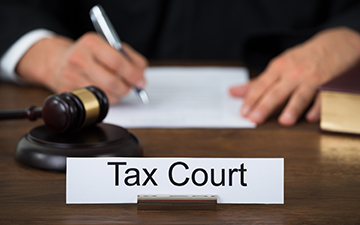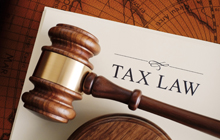Tax Court of Canada presents summer reopening pandemic scenarios

Chief Justice Eugene Rossiter lays out plans, procedures for summer hearings
Editor's Note: We will publish further information on the reopening of the Tax Court in subsequent articles. Check back with us for more.
OTTAWA, May 15, 2020 – Closed and under a business continuity plan due to the COVID-19 pandemic, the Tax Court of Canada has planned five scenarios to reopen this July or August, and will announce next week (in a notice to the profession) that all sittings in June 2020 to July 3, 2020, will be adjourned or cancelled.
In an online presentation today, Chief Justice Eugene Rossiter stressed that the Tax Court does not control its reopening schedule. “Information is everything,” said the Chief Justice. “No one wants to get back to business quicker than me,” said Rossiter, who is in his ninth week of “isolation and lockdown,” but “we are planning for the unplannable.”
The live Zoom meeting on the timeline and protocols surrounding the reopening of the Tax Court of Canada was held by the Canadian Tax Foundation. The Chief Justice took questions from tax accountants and lawyers. Rossiter explained that the Tax Court’s reopening depends upon the Courts Administration Services (CAS) — which provides staffing, security, facilities, and IT services — and the chief administrator of CAS reports not to the Tax Court but to the Ministry of Justice.
The chief administrator has “total control,”answers to the government, and is bound to abide by the government’s policies and guidelines. “The locks are on the door — in 12 locations,” said Rossiter, summing up. “The date that the staff returns to work 100 per cent in the control of government.” However, the Chief Justice does have authority over when and where the court sits, the judge that constitutes the court in any sitting, and the files or appeals that will be heard in any sitting.
Tax Court of Canada reopening scenarios
Between March 16th and May 31, approximately one thousand hearings have been cancelled. Of those thousand hearings, they contain 15,000 documents, of which 2,500 have not yet been digitized. “We have lost to the end of May 2020, 136 sitting weeks in total,” said Rossiter. “That’s a huge loss in productivity for the court.”
Chief Justice Rossiter presented five scenarios for the reopening this summer of the Tax Court, dependant upon staff returning to work on the following possible dates: June 1, June 8, June 15, June 22, or June 29. The Tax Court needs 60 days in order to have sittings for informal litigants and those sittings would likely occur beginning in the first week of August (the Tax Court must give informal litigants 30 days advance notice of trial dates).
For generals, assuming staff return on June 1, sittings would occur beginning the week of July 6, which are already “loaded” with no space for two weeks. Staff will contact litigants in the order that “their appeals fell off the docket by virtue of the closure post March 16th.” Chief Justice Rossiter stressed that litigants should take the date offered. “Take that date. Because if you don’t take that date, you’ll have to go to the bottom of the queue. This is your opportunity here to have your case heard.”
Scheduled hearings are a rolling docket throughout the year. The weeks of July 20th to August 24th, which have yet to be “loaded,” will be filled if and when the Tax Court is back on June 1st. They will begin with the continuances of trials already started, then generals adjourned post-March 16th in the order in which they were adjourned. “But I emphasize take your case when it’s called because, if not, you’ll end up going to the bottom of queue. That’s the best way we can do it. That’s the fairest way we can do it.”
If the Tax Court staff does not come back on June 1st but comes back on one of the remaining four dates, the scheduling in the scenario will be pushed forward on a weekly basis in the calendar, until it comes to a point when sittings in July must be cancelled. “This is all great planning — wonderful plans — but totally dependent on a whole host of factors,” said Rossiter, such as fixed return dates and appropriate numbers for staff returns, the availability of personal protective equipment, limited restrictions on travel for judges, appropriate configurations of courtrooms approved by Health and Safety Canada, and more.
By Colin Ellis, contributing editor to Canadian Accountant. We will update this article and provide more information in subsequent articles during the next few days. Please check back with us regularly or subscribe to our weekly newsletter review.












(0) Comments